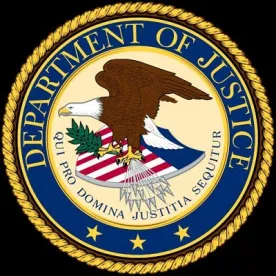On February 22, 2023, the Department of Justice (“DOJ”) announced the new United States Attorneys’ Offices Voluntary Self-Disclosure Policy (“VSD Policy”). Following on the heels of the Criminal Division’s revised Corporate Enforcement Policy, the VSD Policy was also developed in response to the “Monaco Memo,” which directed each component of the DOJ that prosecutes corporate crime to formalize and publish a policy to incentivize corporate voluntary self-disclosure. (See our previous blog posts here and here.) Unlike the revised Corporate Enforcement Policy, which applies to the DOJ’s Criminal Division, the VSD Policy is a new policy developed by the Attorney General’s Advisory Committee and applies to all of the U.S. Attorney’s Offices. The VSD Policy, which is effective immediately, sets nationwide criteria for U.S. Attorney’s Offices for determining the standards of what constitutes a voluntary self-disclosure as well as the appropriate resolution and tangible benefits for an organization that voluntarily self-discloses misconduct.
While the common principles outlined in the Monaco Memo that must apply across voluntary self-disclosure polices remain, there are a few key differences between the VSD Policy and the Corporate Enforcement Policy. The most significant difference is that the VSD Policy does not provide for a presumption of declination. Additionally, the VSD Policy does not elaborate on factors to be considered in evaluating whether a company has fully cooperated and timely and appropriately remediated the criminal conduct, instead directing prosecutors to “rely on operative provisions of the Justice Manual and Department policy.” It should also be noted that in contemplating joint prosecution with another component of the DOJ, the VSD Policy includes a provision allowing for the U.S. Attorney’s Office to apply provisions of alternative voluntary self-disclosure policies in addition to, or in place of, any provision of the VSD Policy.
Voluntary Self-Disclosure Standards
The VSD Policy directs prosecutors to require that disclosures meet each of the following standards in order to constitute a voluntary self-disclosure:
-
The disclosure must be made voluntarily by the company (i.e., no preexisting obligation to disclose, not made by whistleblowers);
-
The disclosure must be timely (i.e., prior to an imminent threat of disclosure or government investigation, before it is publicly reported or otherwise known to the DOJ, and within a reasonably prompt time after becoming aware of the misconduct); and
-
The disclosure must be fulsome (i.e., include all relevant facts known to the company at the time of disclosure).
Prosecutors are also directed to continue to consider the company’s pre-indictment conduct, regardless of whether a disclosure meets the above standards, in determining whether to seek an indictment. JM § 9-28.400 (pre-indictment conduct includes voluntary disclosure, cooperation, remediation, or restitution); see also JM § 9-28.900 (“Even in the absence of a formal program, prosecutors may consider a corporation’s timely and voluntary disclosure, both as an independent factor and in evaluating the company’s overall cooperation and the adequacy of the corporation’s compliance program and its management’s commitment to the compliance program.”).
Benefits of Voluntary Self-Disclosure
Absent the presence of an aggravating factor, prosecutors are directed to not seek a guilty plea where the company meets the three standards of voluntary self-disclosure and has appropriately remediated. Remediation requires the company to agree to pay all disgorgement, forfeiture, and restitution resulting from the misconduct. In such cases, the resolution may include a declination, a non-prosecution agreement, or a deferred prosecution agreement. Where the company demonstrates at the time of the resolution that it has implemented and tested an effective compliance program, prosecutors will not require the imposition of an independent compliance monitor. The VSD Policy further provides that where a company fully meets the standards of voluntary self-disclosure, prosecutors may decline to impose a criminal penalty, and in any event will not impose a criminal penalty that is greater than 50% below the low end of the U.S. Sentencing Guidelines (“Guidelines”) range.
What may warrant seeking a guilty plea, however, are the presence of aggravating factors such as misconduct that (a) poses a grave threat to national security, public health, or the environment; (b) is deeply pervasive throughout the company; or (c) involved current executive management. Where a guilty plea is warranted due to the presence of an aggravating factor, prosecutors are directed to:
-
Accord or recommend at least 50% and up to a 75% reduction of the low end of the Guidelines range after any applicable reduction; and
-
Not require appointment of a monitor if the company has, at the time of resolution, demonstrated that it has implemented and tested an effective compliance program consistent with the factors outlined in the Monaco Memo.
Takeaway
The implementation of a central policy applicable to all U.S. Attorney’s Offices nationwide is a clear response to Deputy Attorney General Lisa Monaco’s remarks that “predictability is critical” and companies must be able to identify the concrete benefits of self-disclosure. Indeed, in the DOJ’s announcement of the VSD Policy, Damian Williams, United States Attorney for the Southern District of New York and Chair of the Attorney General’s Advisory Committee stated the “transparent and clearly delineated policy allows for more predictable outcomes, and seeks to incentivize corporations to do the right thing by reporting wrongdoing before detected by regulators and law enforcement.”
Similar to the recently revised Corporate Enforcement Policy, however, the VSD Policy requires a subjective analysis with little guidance and no case law which may lead to varying interpretations across different districts. Given DAG Monaco’s statement that the goal is to reward companies whose historical investments in compliance enable voluntary self-disclosure, companies nevertheless should continue to review and augment their compliance programs to ensure misconduct can be effectively prevented, detected, and remediated. Determining whether to self-disclose will invariably be a fact-specific process, however, companies should take steps to ensure that where self-disclosure is appropriate, the company is in a position to act swiftly and effectively in order to avail itself of the benefits in the VSD Policy.






 />i
/>i
